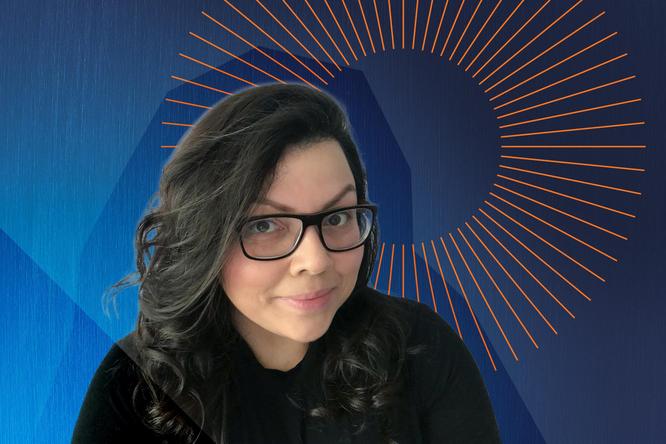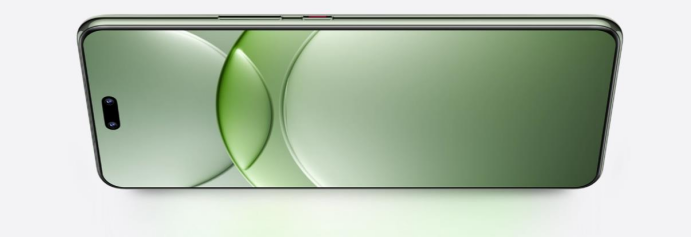When Leslie Arriaza first heard about the University of Virginia’s Bachelor of Interdisciplinary Studies program, she nearly dismissed it, seeing UVA as a four-year school with little room for adult students like herself. However, as Arriaza read more about the program, she realized it fit her circumstances perfectly.
Offered through UVA’s School of Continuing and Professional Studies, the BIS program is designed for adult students who work full-time, have some college credits and need a flexible program to complete their undergraduate degree.
Courses are held online in the evenings, with some options for in-person courses if students are interested in that. The entire program is designed to be flexible, allowing students to complete their degree quickly if they want, or to take courses at night as they can and finish over several years. On average, students complete the program within three to four years.
Students enter the program with 45 to 60 transferable college credits, and must complete 120 total credits to earn a bachelor’s degree. They can choose from concentrations in art and society, business, cybersecurity analysis, early childhood, health care management, history and politics, information technology, liberal arts, psychology and writing, or design their own. Students also complete a capstone project, a two-semester independent research project on a topic of their choice, with mentorship from a faculty member.
Arriaza, who currently works for an accounting firm in Herndon, completed the BIS program in 2019, finishing a college degree that she started years earlier. Now, she is nearly done with a certificate in human resources through SCPS as she continues to build her career.
Here’s what she had to say about her experience.

Q. Why did you decide to enroll in the BIS program?
A. I started college in 2000 and it did not go very well. I was not ready for school and did not really know how to be a student. I did not have much of a framework for what college meant.
When college did not work out, I worked in retail for a long time. I became a manager, working long hours, and going to school was not really an option at that time. However, I was laid off during the recession in 2008, and that really opened my eyes as to where I was going, career-wise. I felt like I needed more structure and stability.
I got a job at an accounting company, and that is when I started seriously considering going back to school. I had plans to go back to George Mason University, where I had originally started, but there were a lot of hoops to jump through and I would have had to retake so many classes. I almost gave up, but a friend sent me information about the BIS program at UVA and I started looking into it.
At first I dismissed it, because I thought there was no way I could get into UVA, but it was geared perfectly toward me and nontraditional students like me. I had about two weeks to apply, by the time I found out about it, so I put everything together really quickly. I’m so glad that I did.
Q. You graduated with a concentration in liberal arts, having also taken many business courses. How has what you learned helped you?
A. I did not expect what I got out of the program. I was very focused on just getting a degree and getting that line on my résumé, so I did not have to explain why I did not finish college. I got so much more out of it than I ever expected.
The classes were liberal arts-focused – even the business courses – and it really made me change the way I think about myself as a student and how I do that work. There was a lot of reflection, on what we learned, who we are and how we interpret things. I was able to transfer those skills to my work as well, which helped me as I progressed through my career while finishing my degree.
I also loved meeting so many classmates of different ages and areas of life and hearing their stories. Many of them were similar to my own – they had tried college before, it hadn’t worked out, but here they were, with me. It was not isolated at all, there was a lot of camaraderie, even online. That was something I was not expecting.
Q. Your capstone project was titled “From the Salvadoran Civil War to Democracy.” Why did you choose that topic?
A. My family is from El Salvador and my parents immigrated to the U.S. I took a class on migration in the BIS program and that was the first time I really thought about and reflected on what my family had to go through to come to the U.S. Like many immigrants, they just wanted a better life. They were also trying to escape a war. I always knew that, but this opportunity gave me a new way to look at my family history.
I had planned on doing a business-focused capstone project, but one of my professors, Ann Marie Plunkett, reached out to me after I wrote a paper about women in El Salvador and what they go through in regards to migration. She asked if I wanted to expand on it for my capstone project. That was the first time I thought about focusing on something other than business in the project.
Working on that project really gave me a chance to get to know the history of my family, especially what my mom’s life looked like before coming to the U.S. It helped me to understand what her journey was like. It reconciled our relationship in many ways, understanding more about what she went through.
It also helped me understand myself more. I was born in the U.S., but my entire family is from El Salvador and this work helped me understand more about that country, as well as the part the U.S., the country I have always considered home, played during the war and the how actions affected political and social relationships in the country my family considered home.
Q. Why did you decide to come back to SCPS to get a certificate in human resources?
A. When I finished my degree, I had been at the accounting firm I joined after the recession for nine years, and I was starting to think about what I wanted the next stage of my life to look like. Another opportunity came up within the HR department at my company, and I jumped on that. That is when I decided to pursue the HR certificate.
Since then, I have taken a different job with another accounting firm, which I have been enjoying. Though I am not working directly in HR, it is a small firm and I work a lot with our HR professionals. I am still using what I am learning in the certificate program, and I think it is helping me become a leader within the organization.
Q. Is there anything else you would like to add?
A. I never would have thought I could go to UVA, and I am just really glad that it worked out the way I did. If I had gone to school on the traditional path, I would not have gotten to be a part of UVA and the BIS community. It was a great experience.




